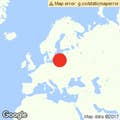
WARSAW, Poland — A march organized by a group seeking authoritarian rule in Poland drew tens of thousands to the streets of Warsaw on Saturday in what organizers and critics say has become Europe’s largest nationalist celebration.
Saturday’s march, which coincided with Poland’s Independence Day, drew tens of thousands of Poles and members from far-right groups across Europe, from the Italian fascist group Forza Nuova to Hungary’s Jobbik. The event started as a small demonstration by fringe radicals in the late 2000s by a group called the National Radical Camp, or ONR in Polish, which takes its name from nationalist factions active before World War II.
The ONR continues to co-organize the march now that it has achieved official status. The group says that it seeks to preserve Poland’s “ethnic homogeneity” and Catholic faith under a military political order. This year’s slogan for the march was “We Want God,” invoking a Polish religious song discussed extensively in President Donald Trump’s July speech, in which he called Poland an example for those with “the will to defend our civilization.”
Krzysztof Bosak, a former member of parliament from the National Movement, a small political party once formally affiliated with the ONR, said Trump’s speech was “exactly what should be said.” Bosak — who calls himself a monarchist — said that previous march slogans included “Poland for the Poles” and “Poland, stronghold of Europe,” but this was the first time in eight years that they’d chosen a slogan to make clear they were marching for Christian nationalism.
Critics call the ONR and other groups that organized Saturday’s march fascist, but organizers reject that label. Robert Bakiewicz, one of the organizers, said he preferred the label “authoritarian.”
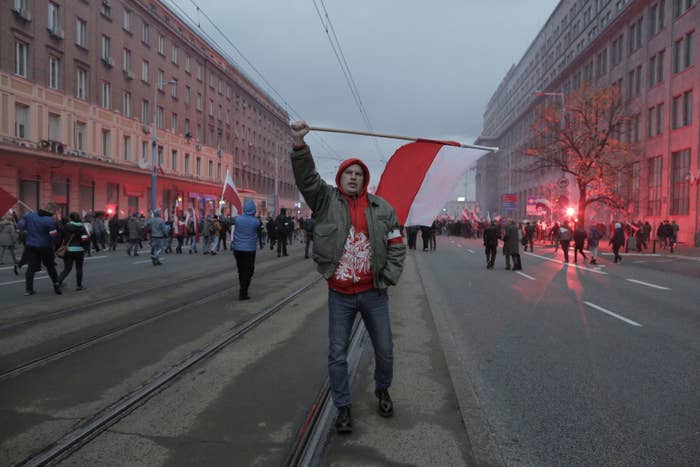
“We just think it’s not efficient when everybody’s vote has equal power,” he said in an interview with BuzzFeed News this week. Despite the group’s radical ideology, it has since grown into one of the largest independence day events, joined in previous years by MPs of the ruling Law and Justice Party and welcomed with a letter read on behalf of President Andrzej Duda.
The ONR co-organizes the march with a group called All-Polish Youth, whose spokesperson Mateusz Pławski described the group as "racial separatists" in an interview with a Polish magazine published Sunday.
"We are racial separatists, we believe that one race is no better than the other, but each one is different, inhabits another continent," he said. "Ethnicity should not be mixed... A black person is not a Pole."
Saturday’s march was preceded by a mass that the priest opened with special greetings to people including members of the ONR, “football fans from all over Poland,” and an MP who belongs to the National Movement, Robert Winnicki. Though the Catholic bishops issued a statement earlier this year condemning nationalism, the march has been extensively covered by influential outlets linked to the church. These include Poland’s largest weekly, Gość Niedzielny, and the broadcasting network owned by a powerful priest, Father Tadeusz Rydzyk.
Organizers kicked off the march with chants that included “Smash, smash, smash liberalism; our way is nationalism” and a performance by nationalist rappers. A number of foreign speakers took the platform to praise Polish nationalism, including Roberto Fiori, the Italian fascist leader who spent several years in Britain to avoid arrest in Italy.
“The virus is spreading in all Central Europe,” Fiore told BuzzFeed News, saying that he was hopeful about the advance of nationalist movements in countries including Hungary, Austria, and Belarus. “I think that Poland now is undergoing a national revolutionary process, and we are trying to follow that process.”
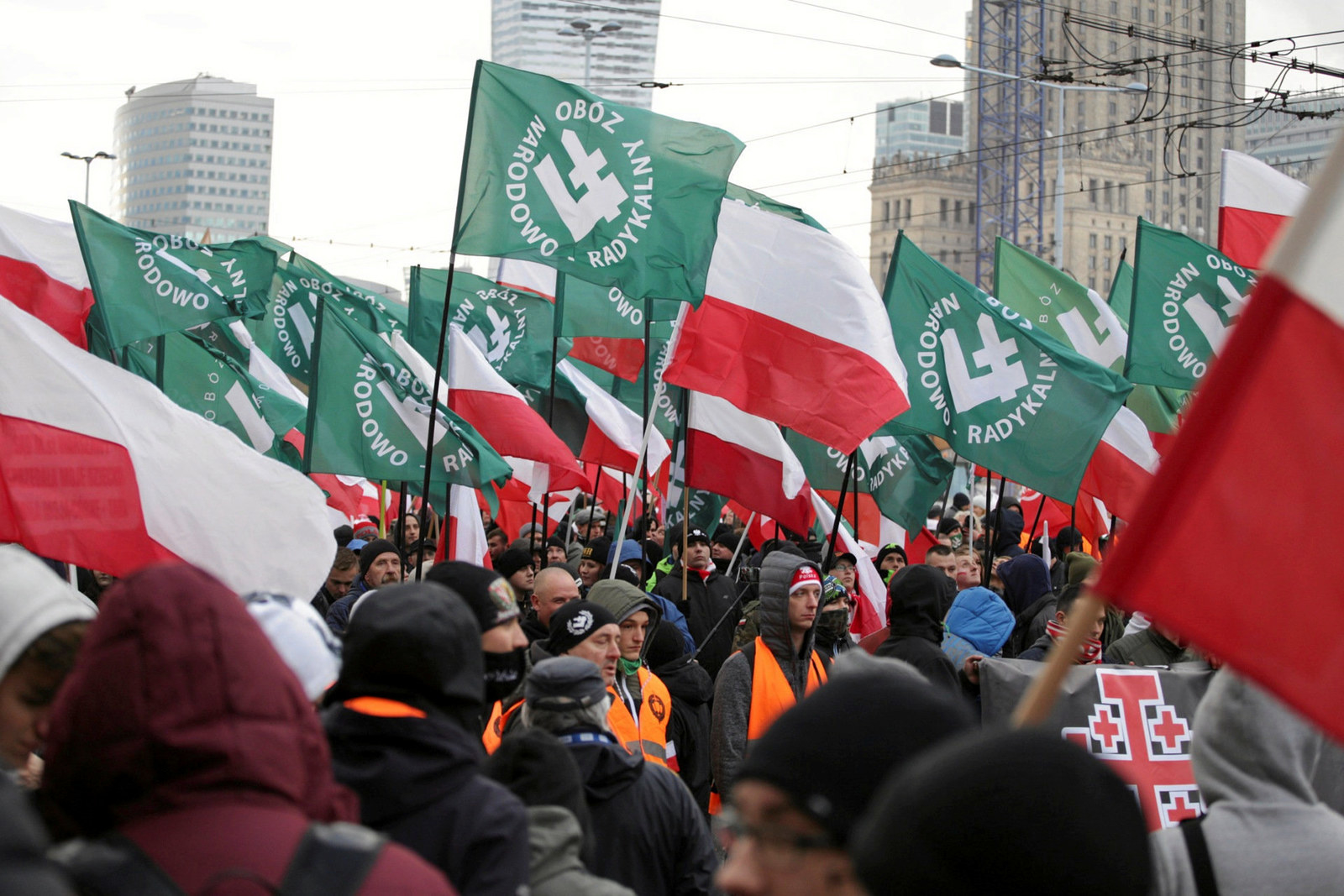
Marchers lit red flares as dusk fell around 3 p.m. and they began their procession. Some carried the neo-Nazi Celtic cross symbol, and a handful had white nationalist slogans like "White Europe of fraternal nations" and "Europe will be white or deserted," Gazeta reported.
Poland has one of Europe's most right-wing ruling parties, which has clashed with the European Union over its refusal to honor an international agreement to resettle refugees and attacks on democratic institutions. On the day before the march, lawmakers with the ruling Law and Justice Party announced a deal to advance a judicial overhaul that has prompted EU leaders to threaten sanctions for undermining the rule of law.
Before the Law and Justice Party took power in 2015, the Nov. 11 march routinely ended in violent clashes between police and anti-fascist protesters. But the government has now given its tacit blessing to the march. The police presence was light on Saturday, despite the possibility of a clash with an anti-fascist march happening a few blocks away.
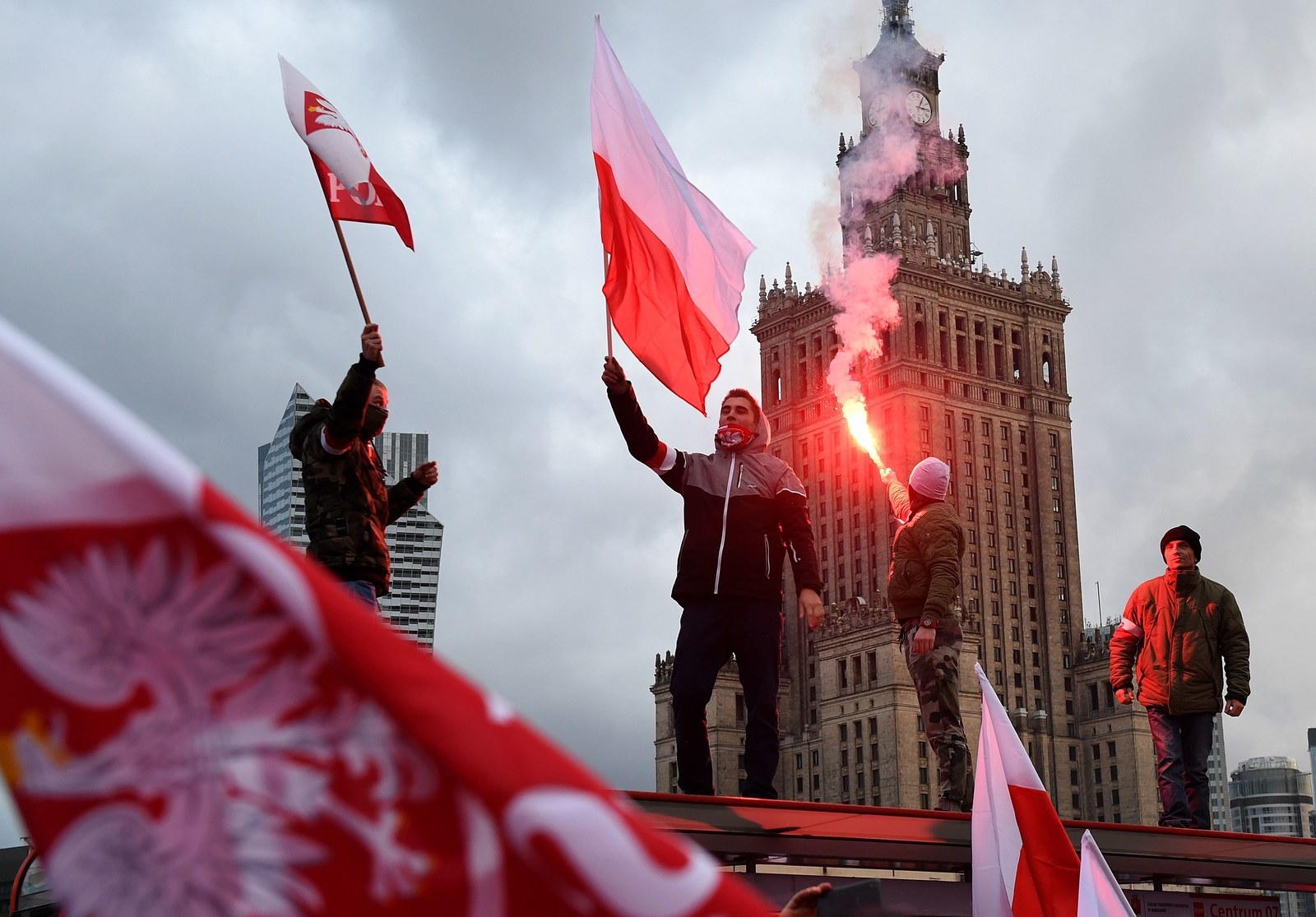
The National Radical Camp and allied factions consider the Law and Justice Party too soft on some issues, wanting the government to confront neighboring Ukraine over grievances dating back to World War II and to take steps to sever ties with the EU. They are most closely tied to the National Movement party, which holds no seats in parliament.
But National Movement board member and former MP Krzysztof Bosak said the party has helped move the debate in their direction, a process he said was accelerated by the European financial crisis and the refugee crisis.
A new delegation of white nationalist groups condemned by organizers announced they would join as a “black bloc,” borrowing the tactic of covering their faces from anti-fascist activists. These factions were connected to a Friday event organized by a publication called Szturm, which was to feature US alt-right personality Richard Spencer before he canceled under pressure from the Polish government. The groups included supporters of the Ukrainian Azov Battalion, a militia with deep neo-Nazi ties.
“We are the voice of those who, in spite of anything and everything, want to destroy the system and build a new home for our people on its ruins,” said black bloc organizers in a statement before the march.
ONR spokesperson Tomasz Kalinowski told BuzzFeed News these groups “have a bit different views on some issues” and “think the independence march is too soft.” But, he said, “we don’t exclude anybody from our march.”
Rafal Pankowski, a sociologist of the far right and cofounder of the anti-fascist association Never Again, told BuzzFeed News that many marchers may not be fully aware of the organizers’ ideology. But the growth of the event shows how far to the right the spectrum has moved in Poland.
“It is about shifting the boundaries and shifting the norms,” Pankowski said. “I think there is an element of triumphalism [among the marchers] in the last two years. Maybe not ‘We have won,’ but ‘We are winning.’
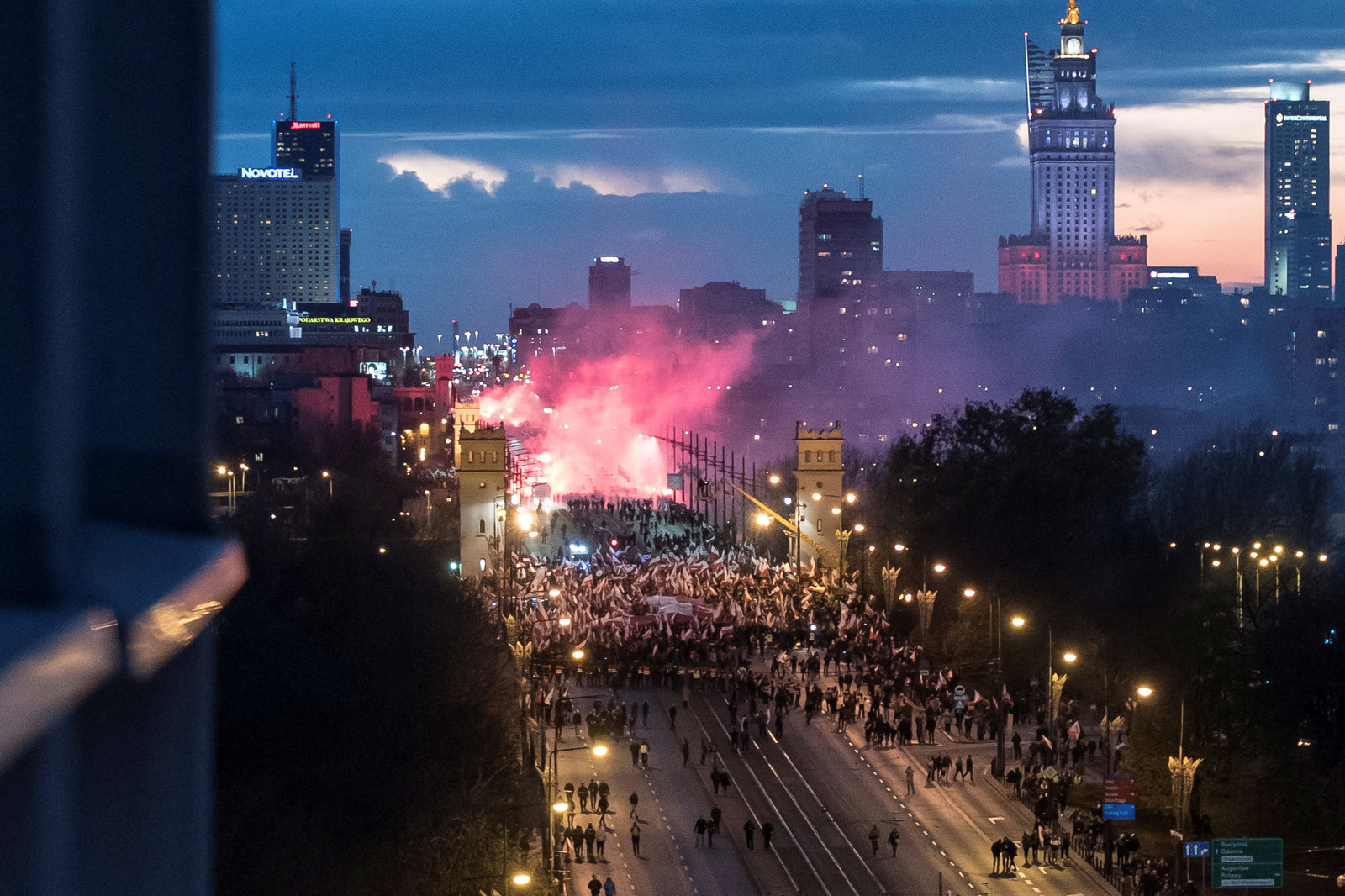
Marcin Krasnowolski contributed reporting.

